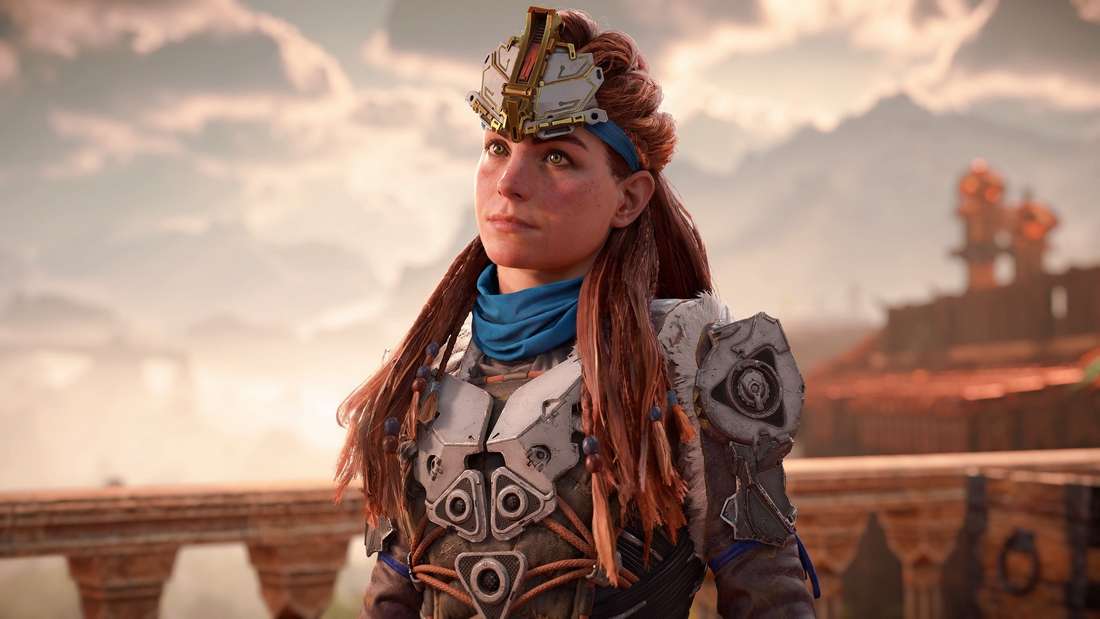Sony Fires Back at Tencent in Horizon Lawsuit: Alleges Corporate “Shell Game” to Evade Liability
Popular Now
 Free Fire Max
Free Fire Max
 Sonic the Hedgehog™ Classic
Sonic the Hedgehog™ Classic
 Genshin Impact
Genshin Impact
 EA SPORT FC 25
EA SPORT FC 25
 Stumble Guys
Stumble Guys
 CarX Street
CarX Street
 Minecraft
Minecraft
 Valorant
Valorant
 R.E.P.O
R.E.P.O
 Warframe
Warframe
 In a significant escalation of the ongoing legal battle over the intellectual property (IP) rights for the hit franchise Horizon Zero Dawn, Sony Interactive Entertainment (SIE) has launched a powerful counter-argument, accusing Chinese tech giant Tencent of attempting to evade legal responsibility by “playing a shell game” with its corporate structure. This high-stakes legal drama, centered on Tencent’s upcoming mobile game, Light of Motiram, underscores the growing tensions and massive financial stakes in the global video game industry, particularly concerning the protection of AAA game IP.
In a significant escalation of the ongoing legal battle over the intellectual property (IP) rights for the hit franchise Horizon Zero Dawn, Sony Interactive Entertainment (SIE) has launched a powerful counter-argument, accusing Chinese tech giant Tencent of attempting to evade legal responsibility by “playing a shell game” with its corporate structure. This high-stakes legal drama, centered on Tencent’s upcoming mobile game, Light of Motiram, underscores the growing tensions and massive financial stakes in the global video game industry, particularly concerning the protection of AAA game IP.
 The Allegations: A Case of Intentional Copying
The Allegations: A Case of Intentional Copying
Sony initially filed its lawsuit in July 2025, labeling Light of Motiram a “slavish clone” of the Horizon series. The core of Sony’s complaint is that Tencent’s game—which features a red-haired protagonist battling massive mechanical beasts in a tribal, post-apocalyptic setting—copies the “look, sound, characters, and narrative” of Horizon with such pervasive detail that it can only be intentional. Sony’s new 35-page filing dismisses Tencent’s defense as “nonsense” and insists that the “damage is done, and it continues.”
- Egregious Similarities: Sony points to the striking resemblance between Horizon’s protagonist, Aloy, and the main character in Light of Motiram, arguing that the copying is so blatant that journalists and fans widely and immediately called it a “knock-off.”
- Infringement as a Brand Identifier: The filing stresses that the look-alike character was used as a key brand identifier across marketing materials, including on platforms like Steam, YouTube, and the Epic Games Store, constituting both copyright and trademark infringement. The Aloy character, Sony argues, is a powerful symbol of the PlayStation brand.
- Failed Collaboration History: Court documents reveal that the dispute follows a breakdown in relations, as Sony had previously rejected a Tencent pitch for a mobile Horizon spin-off, known as “Project Z,” in 2024. Sony alleges that the subsequent development of Light of Motiram proceeded despite this rejection.
 The “Shell Game” and Corporate Accountability
The “Shell Game” and Corporate Accountability
The central point of Sony’s new counter-motion is a direct attack on Tencent’s legal strategy of deflection. Tencent had previously argued that Sony was suing the wrong corporate entity, attempting to shield its parent company, Tencent Holdings, from the full scope of the lawsuit by redirecting blame to its subsidiaries, such as Aurora Studios and Level Infinite.
Sony’s Response to the Liability Defense:
- Tencent Holdings “At the Helm”: Sony asserts that Tencent Holdings is undeniably “at the helm,” noting that the parent company holds the U.S. trademark for Light of Motiram, owns the game’s official domain, and reports all of its gaming revenue and debt at the parent level without explicit attribution to subsidiaries.
- Shielding Defendants: The filing explicitly states: “After SIE was forced to sue, Tencent attempted to avoid liability by playing a shell game with its brands and entities. Tencent tried to shield Defendants that it owns and/or controls from service of process and now seeks to escape jurisdiction over the parent entity, Tencent Holdings.”
- Delay as Admission: Sony also dismisses Tencent’s claim that the case is “unripe” due to the alleged delay of Light of Motiram’s release until 2027—a delay that occurred only after Sony filed the initial lawsuit—suggesting it as a tacit admission of guilt.
High-Stakes Intellectual Property in the Gaming Market
This legal clash highlights a critical issue in the video game news cycle: the aggressive protection of intellectual property by established console holders against the rapid expansion of major mobile developers. Sony views the blatant copying as a direct threat to the Horizon franchise’s “continued success,” especially in light of its ongoing expansion plans and significant investment in the IP.
The legal filings are peppered with terms that resonate across the high-value, high-CPC keywords in the gaming industry—keywords like “intellectual property,” “trademark infringement,” and “gaming legal news”—signaling the financial and strategic importance of the outcome. Tencent, in its earlier defense, had argued that Sony was attempting to create an “impermissible monopoly on genre conventions” by claiming ownership of ubiquitous tropes like the post-apocalyptic setting and robot fauna. However, Sony’s rebuttal focuses heavily on the specific and detailed replication of elements that go far beyond generic genre tropes.
The court is now being asked to deny Tencent’s motion to dismiss, which would push the case into the discovery phase. This would allow Sony’s legal team to thoroughly examine Tencent’s internal development documents for Light of Motiram, a move that could potentially uncover definitive evidence regarding the alleged intentional copying. The outcome of this case is poised to set a major precedent for IP protection in the fast-evolving, multi-billion-dollar global gaming market. Game developers and digital storefronts worldwide are closely watching as the titans of the gaming industry face off in this landmark legal showdown.
Source: Court filings and reports from GamesRadar, GamesIndustry.biz, and The Game Post.









